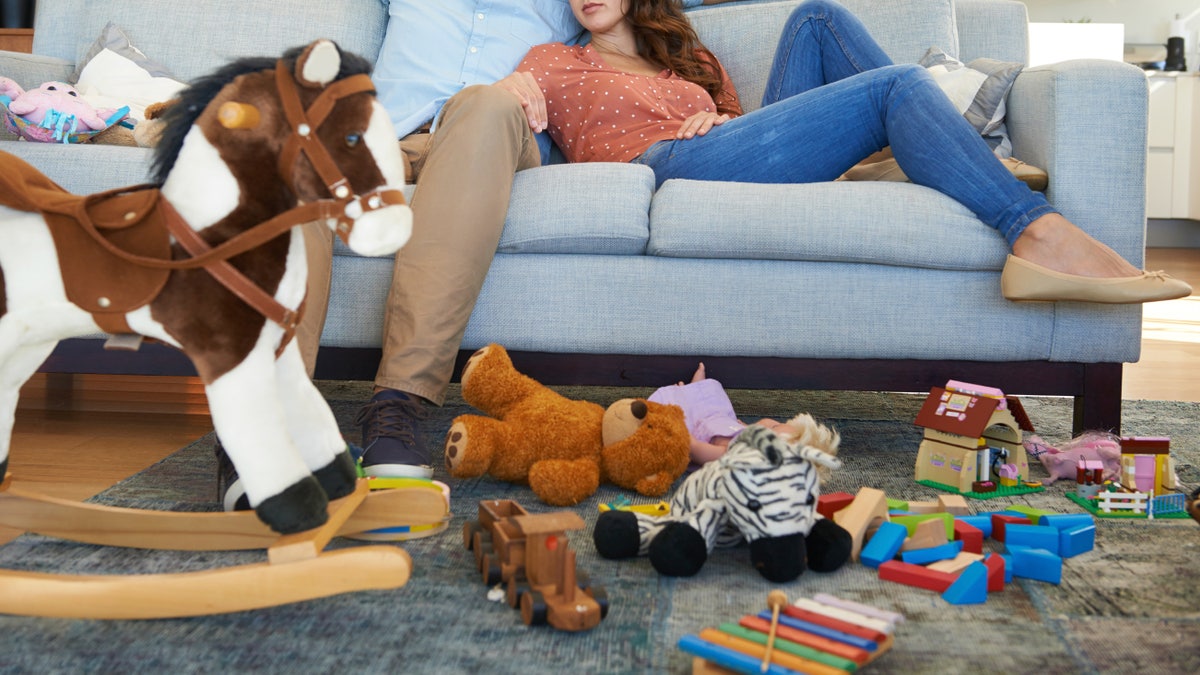
FILE (iStock) ( )
Americans love their stuff. Consider this: despite the average size of the American home having tripled in the last 50 years, with each home containing more than 300,000 items, still, STILL, 1 in 10 Americans rent off-site storage.
I was one of the many stuff-obsessed people, and still can be from time to time, but when I realized how the “stuff” of my life—physical possessions and jam-packed schedules—was really affecting me and my family, leaving me stressed out and feeling chaotic, I took matters into my own hands and put a stop to the clutter.
If you’re finding clutter lurking in your home, in corners and closets, spilling onto counters and coffee tables, creating havoc everywhere you look, it might be time for you take back control. Here are my four guidelines to living clutter free—for good!
1. F—Fight to Stop the Flow
At every turn, we are bombarded with an overpowering message of consumption—there is always something else to buy! We need to actually FIGHT—fight with ourselves, fight against advertising, fight against a culture that is telling us to buy more, more, more. There are two ways to do this.
First, we have to eliminate temptation and simply avoid the stores whenever possible. This means not going to Target or Walmart or even Goodwill if that is your temptation. It means to stop going to garage sales. This is not really about how much you spend; it is about not needing more stuff.
Second, we need to buy only what is essential. Make a list and stick to it or obey a twenty-four-hour policy if you are in the store and see something you like. It means no longer buying on impulse, but instead only going to the store if there is something you really, truly need.
2. R—Reduce by Ruthlessly Purging
Once you’ve fully committed to fighting the flow and keeping the influx of new stuff out, it is time to tackle the mess you’ve already made by ruthlessly purging everything.
To do this, you must decide to keep only that which is currently useful. If you haven’t used it in the past year to eighteen months, stop holding on to it. If you don’t love something or if it doesn’t bring joy or value to your home, don’t let it stay. Give yourself permission to let go of anything you aren’t actually using and give it to someone who might get some use out of it.
3. E—Establish Strict Limits
Adopting a strict limit policy forces us to change our thinking. It reminds us of the fundamental truth that our consumer-driven society so desperately wants us to forget: We already have enough. To do this, we must be persistent about QUANTITY control. In today’s society, more and bigger is seen as better, but this isn’t necessarily the case. If your clutter is out of control, start setting actual numerical limits on the number of things you will allow yourself to have. Forty hangers in your closet. Eight pairs of shoes. Three sets of dishes. No more than one of each tool in the garage. And so on and so on. You will have to decide for yourself what is a reasonable number, but once you’ve determined what is reasonable, be diligent about sticking to it.
4. E—Emphasize Quality over Quantity
We often buy too much stuff because it is cheap and readily available, when we should take a totally different approach and instead choose long-term value over short-term savings. This doesn’t mean spending whatever we want and only buying the most expensive items, but it does mean that sometimes paying a little more for something that will last is a much smarter tactic.
Adopting this philosophy also means committing to buy things that are well made from quality materials. In the end, it is so much better to invest in one quality piece that will stand the test of time than to have to replace a cheap, poorly made item again and again.
For those of us who struggle with too much stuff, even the biggest basement won’t be large enough to contain it all. Because at the heart of the matter, the problem is not the size of our closets; it is us—and more storage space is not the solution. Changing our mind-set will change our actions, which in turn will declutter our homes—for good!




















